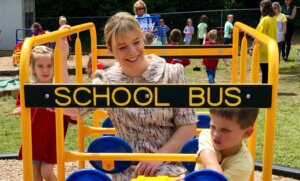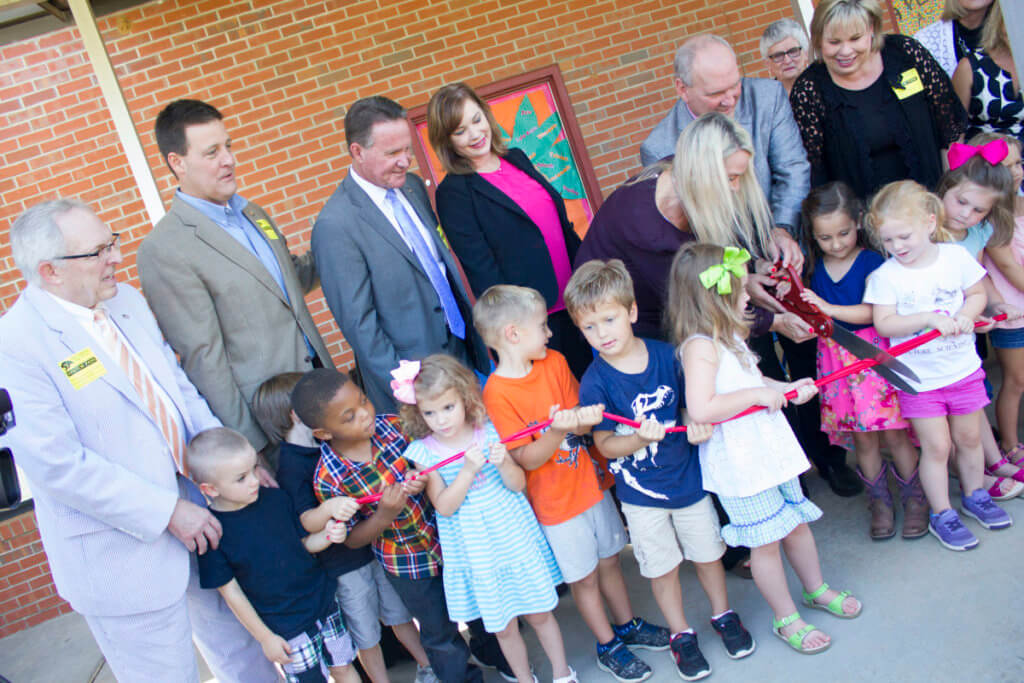Advocates for the expansion of Alabama’s high-quality, state-funded and voluntary First Class Pre-K program are today encouraging state lawmakers to fund Alabama Governor Kay Ivey’s proposed $23 million pre-k budget increase. Combined with funding from year four of Alabama’s four-year federal Preschool Development Grant, a $23 million increase could add approximately 200 new classrooms and help enroll approximately 3,600 additional four-year-olds in the next school year.
The $23 million funding increase is one of a series of recommendations proposed today by the Alabama School Readiness Alliance’s Pre-K Task Force in order to fully fund the state’s First Class Pre-K program by 2023 while maintaining the program’s strong benchmarks for quality and accountability.
The ASRA Pre-K Task Force consists of more than 40 prominent leaders from the business, education, civic, medical, legal, philanthropic, military and child advocacy communities. The Pre-K Task Force first proposed expanding pre-k access to all families in 2012. Since then, state leaders have incrementally increased the level of investment in Alabama’s First Class Pre-K program from $19 million to $77.5 million. In 2012, just six percent of Alabama’s four-year-olds were enrolled in the program. In the 2017-18 school year, approximately 28% of Alabama’s four-year-olds attend First Class Pre-K.
“The Alabama School Readiness Alliance’s Pre-K Task Force supports Governor Kay Ivey’s request for a $23 million increase in state investments in First Class Pre-K during the 2018 Legislative Session,” the Task Force wrote in its 2018 recommendations. “If appropriated, this will bring total First Class Pre-K investments to $100.5 million for FY 2019 and keep the state on track to meet the Pre-K Task Force’s decade long vision for fully funding First Class Pre-K.”
Alabama’s First Class Pre-K program is managed by the Alabama Department of Early Childhood Education. For 11-years in a row, it has been ranked the number one state-funded pre-kindergarten program in the country for quality by the National Institute for Early Education Research.
Across the state, there are 941 Alabama First Class Pre-K classrooms located in various public and private schools, child care centers, faith-based centers, Head Start programs, and other community-based preschool settings.
A 2012 study by the Public Affairs Research Council of Alabama followed students through sixth grade and found that those that participated in Alabama’s First Class Pre-K program consistently outperformed their peers. New research by PARCA and the University of Alabama at Birmingham also finds that First Class Pre-K graduates are more likely to be proficient in reading and math on 2016 state assessments. First Class Pre-K graduates are also less likely to be chronically absent, repeat a grade, or require special education services.
The 2018 Alabama School Readiness Alliance Pre-K Task Force Recommendations can be viewed in their entirety at: alabamaschoolreadiness.org/recommendations/
The Alabama School Readiness Alliance advocates for the expansion of high-quality, voluntary pre-kindergarten. ASRA works to ensure that pre-k is a continuing priority for Alabama’s children, parents, community leaders, legislators and governing officials. ASRA is a collaborative effort of A+ Education Partnership, Alabama Giving, Alabama Partnership and VOICES for Alabama’s Children.







